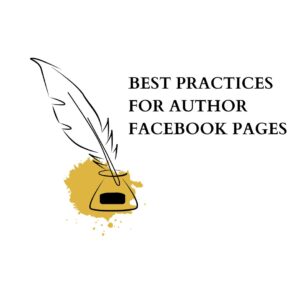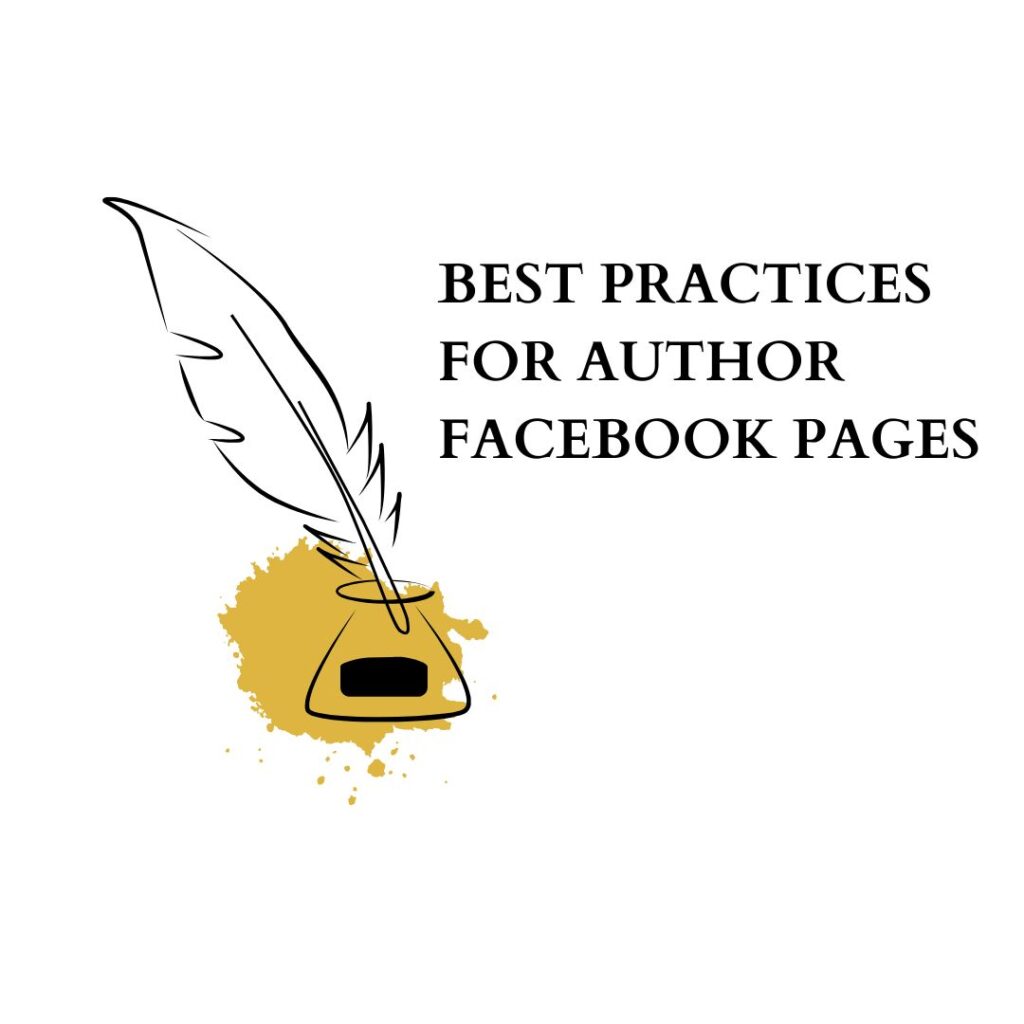Best Practices for Author Facebook Pages
In today’s digital age, having a strong online presence is essential for authors. Facebook, with its vast user base, offers a unique platform for authors to connect with readers, promote their work, and build a community. This guide will explore best practices for creating and managing an effective Author Facebook Page, helping you engage your audience and enhance your visibility as a writer.

Table of Contents
Why You Need an Author Facebook Page
Having an Author Facebook Page allows you to:
- Connect with Readers: Engage directly with your audience and build relationships.
- Promote Your Work: Share updates about new releases, events, and promotions.
- Establish Your Brand: Create a professional online presence that reflects your identity as an author.
- Gather Feedback: Use your page to solicit opinions and feedback from readers.
Setting Up Your Author Facebook Page
Creating your Author Facebook Page is the first step toward building your online presence.
Step-by-Step Setup:
- Create a Personal Account: You need a personal Facebook account to create a page.
- Select “Create” from the Menu: Click on the “Create” button at the top right of your homepage.
- Choose “Page”: Select “Page” from the dropdown menu.
- Fill in Your Details:
- Page Name: Use your name or pen name.
- Category: Choose “Author” or “Writer.”
- Description: Write a brief description of who you are and what you write.
- Upload Profile and Cover Photos:
- Use a professional headshot for your profile picture.
- For the cover photo, consider using an image of your book or something related to your genre.
Optimizing Your Page
Once your page is set up, optimizing it is crucial for attracting followers.
Key Optimization Tips:
- Complete Your About Section: Include links to your website, social media profiles, and any relevant information about your writing.
- Use Keywords: Incorporate relevant keywords in your description to improve searchability.
- Enable Messaging: Allow followers to message you directly for questions or interactions.
Content Creation Strategies
Creating engaging content is vital for keeping your audience interested.
Types of Content to Share:
- Book Updates: Share news about upcoming releases or writing progress.
- Behind-the-Scenes Content: Give readers a glimpse into your writing process or daily life as an author.
- Quotes and Excerpts: Post memorable quotes from your books or short excerpts to entice readers.
- Interactive Posts: Ask questions or create polls to encourage engagement.
Posting Frequency:
Aim to post at least 2-3 times per week to maintain visibility without overwhelming your audience.
Engaging with Your Audience
Engagement is key to building a loyal following on Facebook.
Strategies for Engagement:
- Respond to Comments: Always reply to comments on your posts to foster interaction.
- Host Q&A Sessions: Consider hosting live Q&A sessions where readers can ask questions about your books or writing process.
- Share Reader Reviews: Highlight positive reviews from readers to build credibility and encourage others to read your work.
Using Facebook Insights for Growth
Facebook Insights provides valuable data about how your page is performing.
How to Use Insights:
- Analyze Engagement Metrics: Look at likes, shares, comments, and overall reach to understand what content resonates with your audience.
- Adjust Strategies Accordingly: Use this data to refine your content strategy based on what works best.
Promoting Your Page and Books
Promotion is essential for growing your audience.
Effective Promotion Techniques:
- Cross-Promote on Other Platforms: Share links to your Facebook page on Twitter, Instagram, and other social media platforms.
- Run Facebook Ads: Consider using targeted ads to reach potential readers who may be interested in your genre.
- Collaborate with Other Authors: Partner with fellow authors for joint promotions or events that can benefit both parties.
Leveraging Facebook Groups
Facebook groups can be a powerful tool for connecting with like-minded individuals.
How to Utilize Groups:
- Join Relevant Groups: Participate in groups related to writing, publishing, or specific genres.
- Engage Actively: Share insights, answer questions, and promote your work when appropriate (without being overly promotional).
- Create Your Own Group: Consider creating a group focused on discussions around your books or writing topics that interest you.
Handling Negative Feedback
Negative feedback is inevitable but can be managed effectively.
Tips for Managing Criticism:
- Stay Professional: Respond calmly and professionally; avoid engaging in arguments.
- Learn from Feedback: Use constructive criticism as an opportunity for growth and improvement in future works.
- Know When to Ignore: Not all feedback requires a response; sometimes it’s best to let it go if it’s not constructive.
Frequently Asked Questions (FAQs)
1. Why should I create an Author Facebook Page?
Creating an Author Facebook Page allows you to connect with readers, promote your books, share updates about your writing journey, and build a professional online presence. It serves as a platform to engage with your audience and establish your brand as an author.
2. How do I set up my Author Facebook Page?
To set up your Author Facebook Page:
- Log in to your personal Facebook account.
- Click on the “Create” button at the top right of your homepage and select “Page.”
- Choose “Author” as your category and fill in your page details, including your name, description, and profile/cover photos.
- Complete the “About” section with relevant information and links.
3. What should I include in my Author Facebook Page’s “About” section?
In the “About” section, include:
- A brief bio that highlights your writing background.
- Links to your website and other social media profiles.
- Information about your books, genres, and any notable achievements.
- Contact information for inquiries or collaborations.
4. What type of content should I post on my Author Facebook Page?
Post a variety of content to engage your audience, including:
- Updates on upcoming book releases or writing progress.
- Behind-the-scenes glimpses into your writing process.
- Quotes or excerpts from your books.
- Interactive posts like polls or questions to encourage reader engagement.
5. How often should I post on my Author Facebook Page?
Aim to post at least 2-3 times per week to maintain visibility without overwhelming your audience. Consistency is key; find a schedule that works for you and stick to it.
6. How can I engage with my audience effectively?
Engage with your audience by:
- Responding promptly to comments on your posts.
- Hosting live Q&A sessions where readers can ask questions.
- Sharing reader reviews and testimonials to build credibility.
- Asking questions or creating polls to encourage interaction.
7. What are Facebook Insights, and how can they help me?
Facebook Insights is a tool that provides data about how your page is performing, including metrics like reach, engagement, and follower demographics. Use this information to understand what content resonates with your audience and adjust your strategy accordingly.
8. How can I promote my Author Facebook Page?
Promote your page by:
- Sharing links on other social media platforms (Twitter, Instagram, etc.).
- Running targeted Facebook ads to reach potential readers.
- Collaborating with other authors for joint promotions or events.
- Engaging in relevant Facebook groups related to writing or reading.
9. How do I handle negative feedback on my page?
When handling negative feedback:
- Respond professionally and calmly; avoid arguments.
- Use constructive criticism as an opportunity for growth.
- If the feedback is unhelpful or rude, it’s okay not to respond or to delete the comment if necessary.
10. Can I use my personal Facebook account for author purposes?
While you can share updates about your writing on a personal account, it’s recommended to create a separate Author Facebook Page for professional purposes. This allows you to maintain a clear distinction between personal interactions and professional branding.
Conclusion
Building an effective Author Facebook Page requires dedication and strategic planning. By following these best practices—setting up your page correctly, optimizing it for engagement, creating compelling content, utilizing insights, promoting effectively, and managing feedback—you can create a vibrant online community around your work. Embrace the power of social media as an author! With consistent effort and genuine interaction with your audience, you can enhance your visibility as a writer and foster lasting connections with readers who are eager to support you on your literary journey! Start implementing these strategies today and watch as your Author’s Facebook Page flourishes!
Discover marketing services, interviews & publishing tools at SharingStories.



